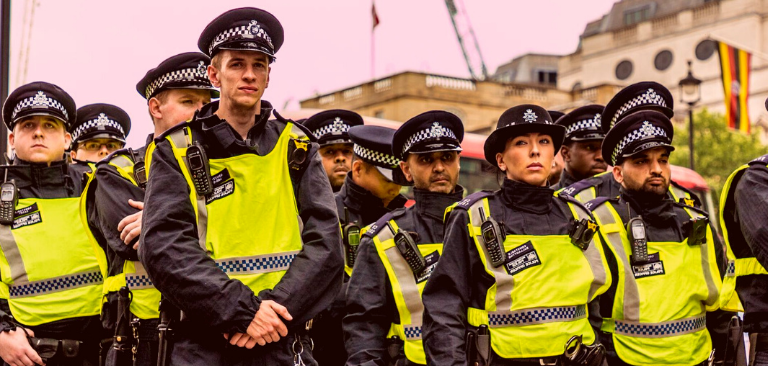A 14-year-old British schoolgirl wants the College of Policing guidance reviewed so that the police will stop recording the overreaching “non-crime hate incidents.” She claims that the guidance has a chilling effect on freedom of speech.
Guidance from the College of Policing in the UK included a provision allowing police to keep a record of hate incidents for school-going kids, even based on online comments, regardless of whether the incident qualifies for criminal charges. As such, these non-crime incidents appear on a person’s permanent record later in life.
In the past five years alone, police in both England and Wales have recorded more than 120,000 hate incidents. Like many pushing back against frightening overreach in the country, the 14-year-old girl, identified only as Miss B, is concerned about such a policy.
In a letter to the College of Policing, her lawyers, from Sinclair Law, argued that the recording of non-crime hate incidents has a “chilling effect” on her freedom of speech rights.
Related: UK police record Darren Grimes podcast investigation as non-crime hate crime
The guidance from the College of Policing “frightens” her from openly discussing issues. Despite her having dyslexia and an auditory processing disorder, she believes the guidance should be reviewed.
A Orwellian non-crime hate incident occurs when the victim believes there is hostility motivated by their race, disability, religion, sexuality, or gender preference.
The guidance says that police should record a non-crime hate incident “if the victim or any other person perceives that the incident was motivated wholly or partially by hostility, even if it is referred to a partner to respond.”
The guidance also allows the police to identify an incident even if the victim and others do not see an incident. Additionally, the police can record an incident when the victim does not want to acknowledge they have been targeted for their “protected characteristics” and even when they are “not aware that they are the victim.”
Related: UK Police are secretly adding people to hate lists based on their tweets
According to the College of Policing, the guidance will help the police “best preserve freedom of speech while protecting people from crime.”
In the letter, Miss B’s lawyers argued that the guidance’s definition of hostility is vague and “alarmingly broad.” It would result in Miss B suffering consequences regardless of whether her remarks were not intended to show hostility towards anyone.
The lawyers noted that Miss B was “concerned about the possibility of having a police record potentially including details of conversations that she had at school.” She also fears that such a record “would impact on her future career prospects,” The Times reported.
The lawyers also claimed that the guidance would prevent her from “expressing her views freely within school and from contributing to important class debates on controversial issues.”








